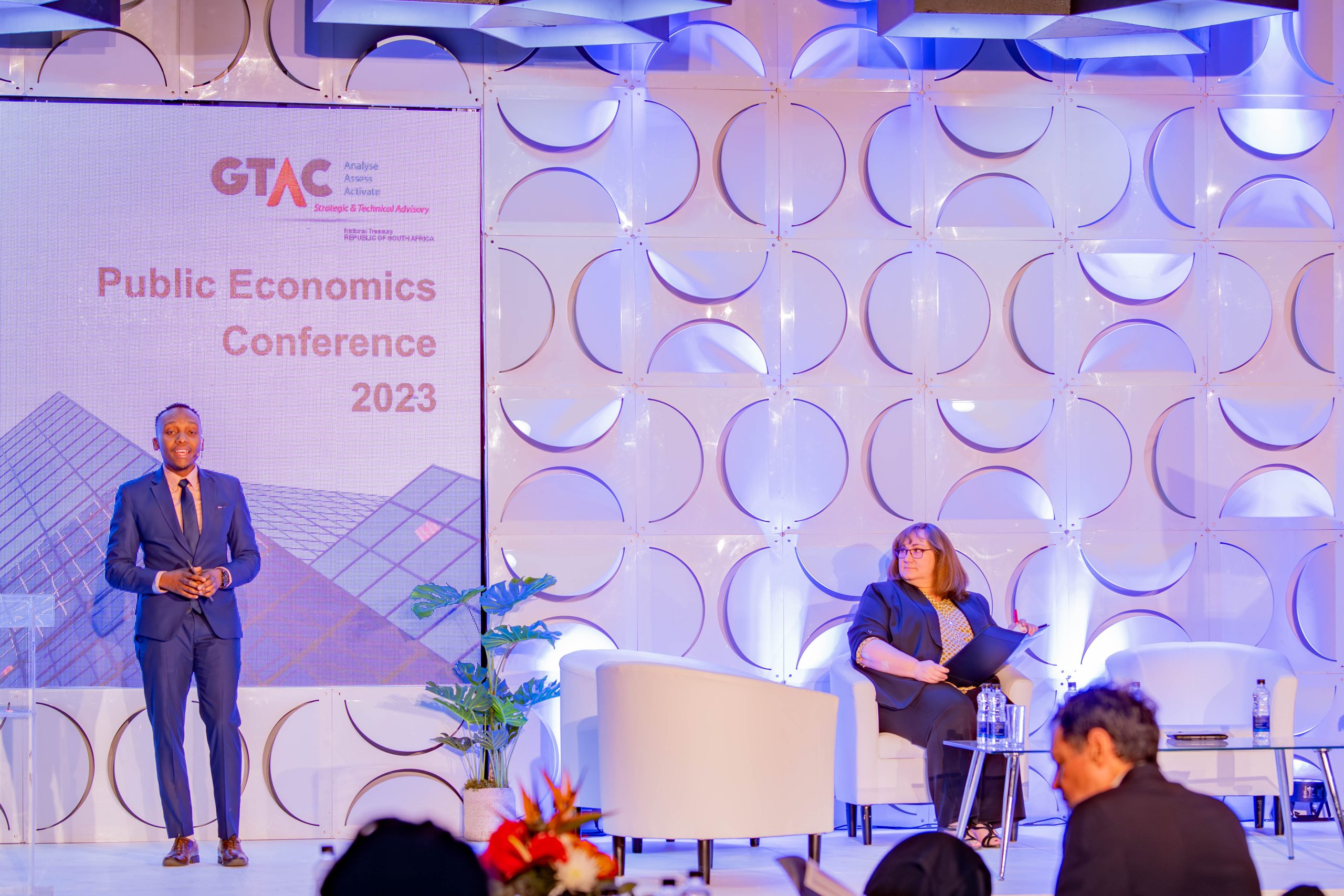By Vusi Maupa
Like many other economies, South Africa relies immensely on the growth and stability of its economy, which is directly linked to the country’s manpower and resources. Unfortunately, multiple challenges face the country – mass unemployment, energy crisis, high sovereign debt, a negative balance of payments, currency devaluation, and increasing competition in the world market. Tackling these challenges requires a coordinated multistakeholder approach between government, the private sector, academia, and civil society to spark and implement socio-economically innovative ideas.
Such a formal discourse was organized and hosted by the Government Technical Advisory Centre (GTAC) in coordination with the National Treasury of South Africa to address the above issues faced by the South African economy. Consequently, the inaugural Public Economics Conference – an amalgamation of the then flagship GTAC Winter School conference and the Savings @ Work conference – was hosted as a two-day symposium from 6 to 7 September 2023 in Midrand, South Africa. A hybrid event with both online and in-person attendance, the conference revolved around the economics of job creation, the evaluation of the government’s employment programs, and an in-depth overview of national expenditure.
Ronette Engela, Acting Head of GTAC, formally initiated the conference proceedings with a welcoming address, followed by an opening keynote address from the Minister of Finance, Enoch Godongwana, who highlighted several challenges faced by South Africa and the importance of such a conference as a stepping stone towards the direction of resolving the challenges. The conference scene was set through the highlight of major topics under discussion for the day in the shape of case studies, panel discussions, and presentations.
Statistical data and critical pieces of research were displayed in a plethora of informative presentations facilitated and delivered by renowned economics experts in South Africa, including Professor Steven Friedman from the University of Johannesburg, Yolande Smit from the National Treasury, Michael Sachs from the Southern Centre for Inequality Studies, Neil Cole from the Just Energy Transition Partnership, Mamiky Leolo from the South African Revenue Services, Najwah Allies from the Jobs Fund, and Andrew Donaldson from the Southern Africa Labour and Development Research Unit. They steered the audience in the right direction concerning South Africa’s future, particularly in the public finances and the electricity
sector. They also underscored the significance of government employment initiatives, public expenditure programs, and quality measures taken by the Jobs Fund to counter the pressing challenge of unemployment.
The introductory panel discourse sketched an outline of the macroeconomic barriers of South Africa’s fiscal policy, followed by a content session discussing expenditure choices to cater to the economic gap between the policies and national reserves. More panel discussions included an analysis of investment opportunities in the electricity sector for energy transition, with directions to update the energy resources from fossil fuels to renewable media. At the end of day one, the income tax data, the causes of low labour utilization rates, and the impact of labour market policies and their underpinning reforms were spotlighted.
The case studies presented critical evidence of the close relations among deterioration of spending rates, underfunding, and unemployment. Moreover, emphasis was laid on the need for the ‘renovation’ of South Africa’s fiscal policy to compete with international counterparts and exponentially boost the GDP growth rate.
As the conference moved towards its culmination, panel discussions focused their motives on solving problems and devising productive policies to check the unemployment challenge while catering to the current state of the country.
Statistical evaluations on spending reviews and Jobs Fund were inspected, encompassing options regarding employment policies and program design in a labour-surplus economy. Intellectual discourse on spending reviews, based on a series of factual case studies, helped draw a link between policy development and implementation via the provision of comprehension of the institutional landscape, policy, and budgetary implications. Steps were devised to overcome identified barriers to job creation, including but not limited to demand and supply for labour, and the broader institutional environment. Programmes like the National Artisan Development Programme and Farmer Support Programme shed light on the solutions to the unemployment challenge and smart spending choices.
The conference was full of insight and practical solutions to the economic plight faced by South Africa post-pandemic. One of its many benefits included the involvement of youth, especially students of similar interests, in such symposia. It provided exposure to real-life dilemmas of society not depicted in literature studied in universities. Such interactive sessions helped shape the mindset of youth, so they can be problem solvers of tomorrow.
As the programme director, it was a privilege to be tasked with the responsibility of monitoring the entire conference and ensuring that the sail was smooth. Not only was this an enjoyable experience, but it was also an eye-opener for me. The conference attracted over 500 registrations from South African national and provincial government departments, and universities in the Southern Africa Development Community region, Asia, Europe, and America.
The success of this event is credited to the GTAC and the National Treasury, organisers, facilitators, presenters, service providers and, most importantly, participants who hailed from different corners of the world. As much as it may be convenient to wish so, symposia such as the Public Economics Conference do not seek to provide definite solutions to South Africa’s challenges, but to begin work on one small part of a larger agenda that might do so. A culmination of such conventions, imbued in concerted efforts to devise practical and implementable solutions, is what South Africa needs!
END







One thought on “GTAC’s first Public Economics Conference: a glimmer of hope for job creation”
Excellent reflection of the conference. I joined this session online last year.